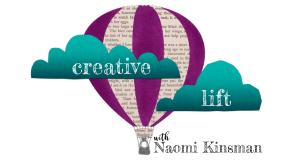This year, for the first time, I hosted a book club for young readers. I have to say, this may be the best thing I’ve done for my writing in a long time. What an excellent reminder it is to listen to readers talking about why they like a book and maybe even more importantly, why they don’t.
I’d suggest to all authors of books for children: start a book club with readers the age for which you’re writing. Suddenly all those uncomfortable truths that you’ve tried not to notice will be right in your face. Are readers really interested in the topics you’re writing about? If not, is there a way that your passion can hook into theirs? Are readers of this age ready for the themes in your book, or might you deal with the topic in a way that is more age-appropriate? Now, I’m the last to water down anything for kids. Kids are capable of a lot more than we think. However, sometimes we bring the heavy issues we deal with as adults into the writing of books for children and forget that books are also a place readers go to escape, to try new skills, to build their own courage and resilience. It may be, if we’re dealing with fear in a book, for instance, that what scares us is different than what scares a reader of this age. Considering their experiences and needs while we write is certainly not a bad thing.
In any case, if you’re a writer for children or teens, I strongly suggest starting a book club with young readers. Listen to them. Keep an open mind. Ready to start? Here are a few tips about running a book club:
1. Set some kind of structure. In my club, I email a list of questions ahead of time to the girls. The questions give the conversation structure and allow readers who think on their feet and those who need more processing time the chance to participate.
2. Use discussion guides as a resource. Most books have discussion guides online that will provide a starting place for your questions.
3. Use the Scholastic Book Wizard. Young readers are still growing in their comprehension and ability. A book that is far beyond their skill will only be frustrating. The Scholastic Book Wizard helps identify reading level and interest level for most books.
4. Ask for book recommendations in advance. I like to ask for recommendations by email, but you could also have a jar for readers to drop ideas into. It’s nice to have looked into the books a bit before putting them up for a vote for the group.
5. Tap into authors as resources. Most authors are happy to answer questions from the group via email or even by skype. It never hurts to ask!
6. Keep things fresh and varied. It’s easy for a group to fall into a genre pattern or for meetings to start to become stale. Mix it up by asking the group to set the questions one time, choosing a very different kind of book, or gathering suggestions for fresh approaches from the group.

